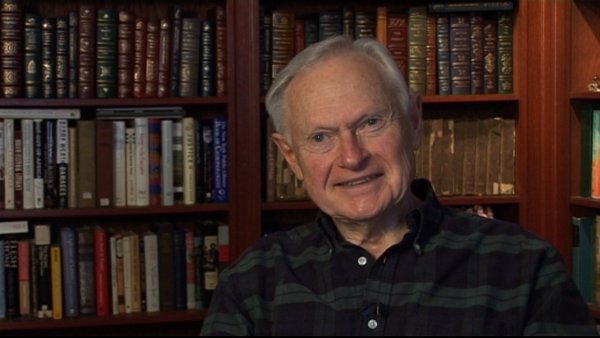NEXT STORY

Devouring medical literature
RELATED STORIES

NEXT STORY

Devouring medical literature
RELATED STORIES


|
Views | Duration | |
|---|---|---|---|
| 41. The philosophy of surgery | 261 | 04:24 | |
| 42. Judgement as the ultimate tool of a physician | 206 | 04:01 | |
| 43. The art of keeping yourself calm | 1 | 260 | 05:12 |
| 44. Surgery is fun! | 200 | 04:09 | |
| 45. Devouring medical literature | 186 | 03:54 | |
| 46. Averill Liebow and the best compliment I've ever had | 246 | 05:37 | |
| 47. The difference between information, knowledge and wisdom | 241 | 04:45 | |
| 48. The importance of being curious | 203 | 04:44 | |
| 49. 'Be kind, for everyone you meet is fighting a great battle' | 1 | 269 | 03:22 |
| 50. Percy Shelley's moral imagination | 207 | 04:34 |


So those years of training were great fun, and I have deliberately chosen the word fun, and I'll tell you why.
Once, when I was… oh, I guess I was in my early 50s, the Dean of the medical school made a suggestion that first-year medical students meet with representatives of various specialities, so that these representatives could tell the first-year medical students what it was about their speciality that attracted them, what it was that kept up their interest, inspired them. So, they chose two people, we were almost all men at that time, two people from each of the major branches. Two people from internal medicine, two people from surgery, paediatrics, neurology, pathology, psychiatry. And we sat in this large conference room with about 30 of these very impressionable young people. Now, why two? One of them was from the full-time academic faculty. They didn't operate nearly as much as we did. They operated enough, but they didn't operate as much as we did, and they were expected to do laboratory research and they taught. That was the academic group. The clinical group, of which I belonged, were the ones who were primarily the operating surgeons, and we taught as much as they did, but we didn't do any research.
Well… the two people from internal medicine spoke, and I don't remember who spoke next, and it came time for the two people from surgery, and my colleague, who was an academic surgeon, stood up. We were all sitting in chairs like these. He stood up and he looked at these young folks, and he said, 'You know, surgery is essentially an exercise in practical physiology. You learn about wounding the body. You learn what the body can tolerate, and you study the mechanisms of healing, you study how the body can get along without a particular organ, or how the intestine, for example, can function when the food is going in a slightly different direction. It is really the way you learn, believe it or not, about the microscopic structure, the biochemistry that you're inflicting on the patient, because every operation is a wound'. It was really a very nice exposition, but we were only supposed to have two minutes, and being an academic physician, he used up his two minutes and mine, which left me having to synopsize what I wanted to say. But it was very simple, because what I wanted to say, and what I did say, when it came my turn to stand up, I said, 'I love surgery because it's fun'. And I sat down.
Of course, later, the kids asked questions and so on, but surgery was always great fun for me. I don't think I had more than three or four episodes in all the 35 years, where I suddenly became terrified, but one can always calm oneself down, because you have a history of getting out of trouble. And that's the other nice thing about lots of experience: you develop a confidence based on, quote: no matter how bad this looks, I've been in something just as bad or worse and I haven't had any catastrophes happen to me.
Sherwin Nuland (1930-2014) was an American surgeon and author who taught bioethics, the history of medicine, and medicine at the Yale University School of Medicine. He wrote the book How We Die which made The New York Times bestseller list and won the National Book Award. He also wrote about his own painful coming of age as a son of immigrants in Lost in America: A Journey with My Father. He used to write for The New Yorker, The New York Times, Time, and the New York Review of Books.
Title: Surgery is fun!
Listeners: Christopher Sykes
Christopher Sykes is a London-based television producer and director who has made a number of documentary films for BBC TV, Channel 4 and PBS.
Tags: Yale Medical School
Duration: 4 minutes, 9 seconds
Date story recorded: January 2011
Date story went live: 04 November 2011